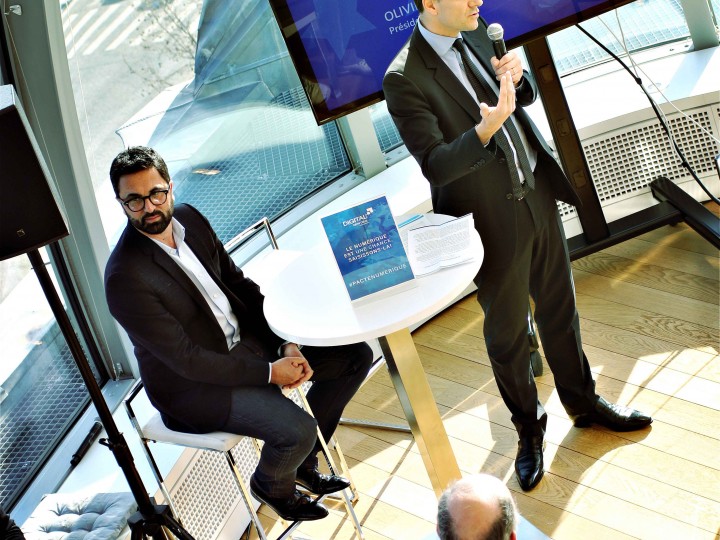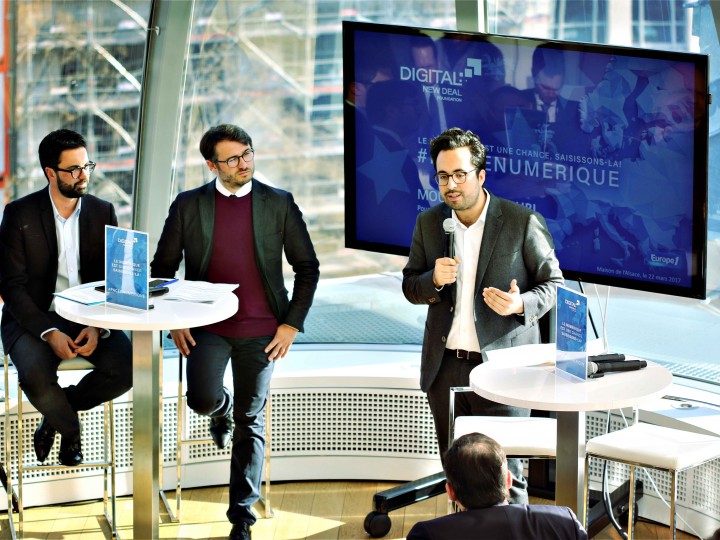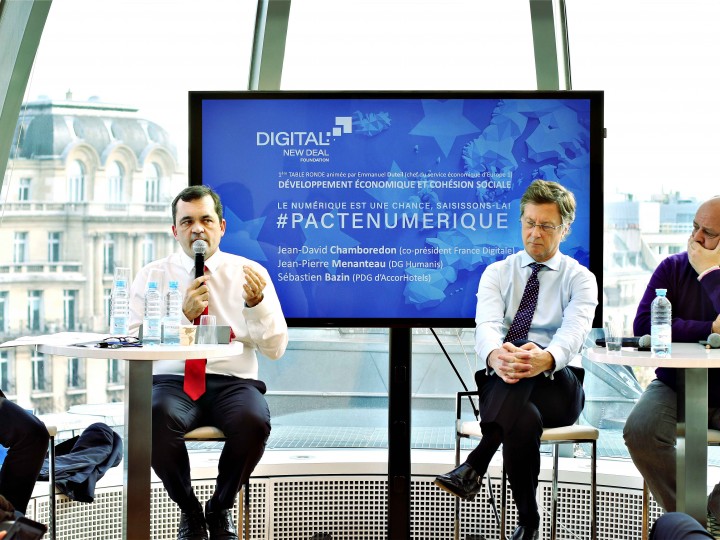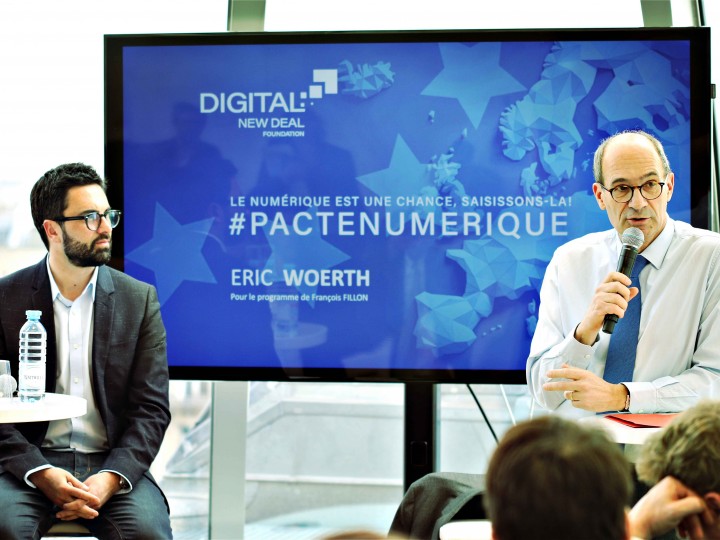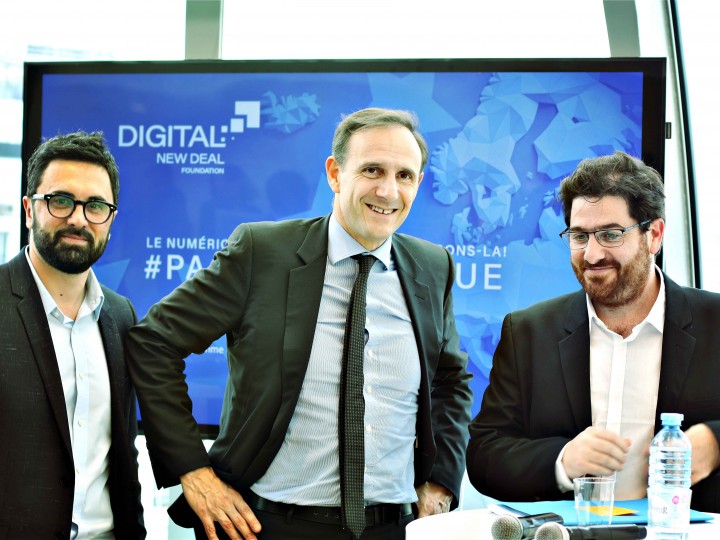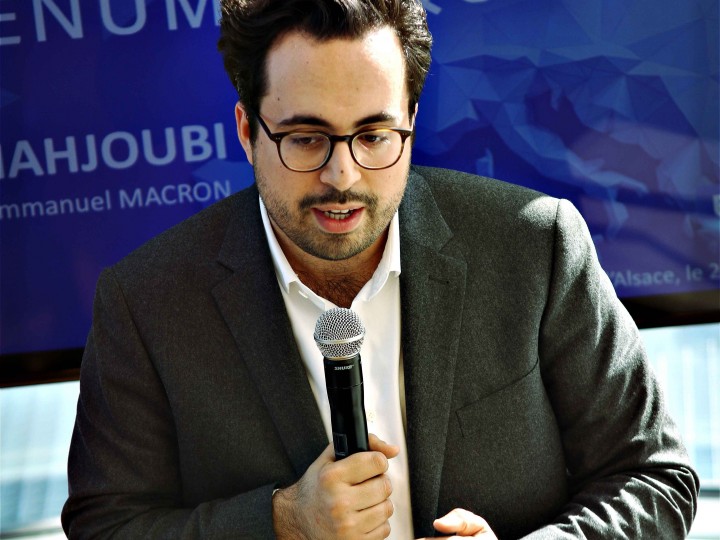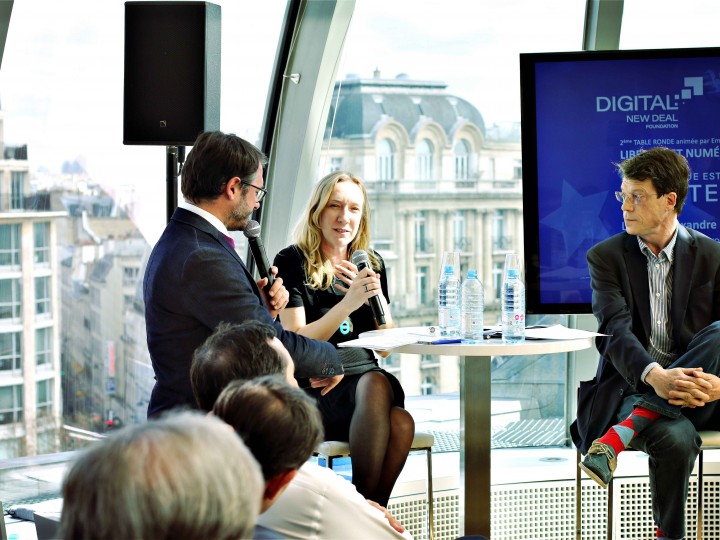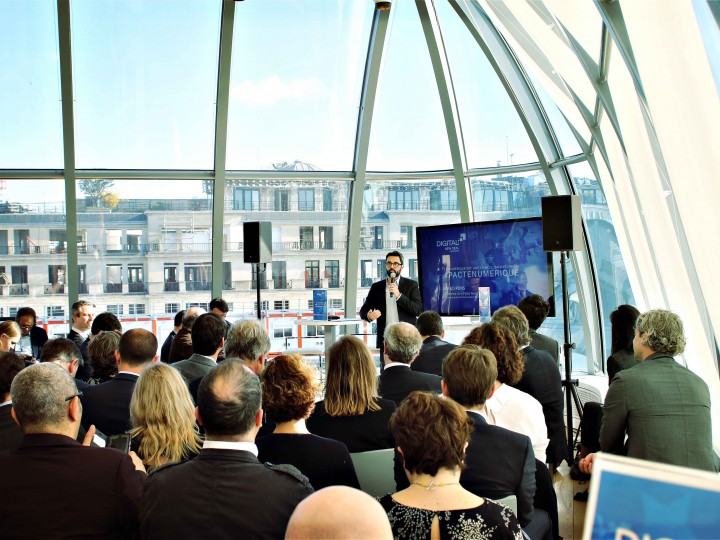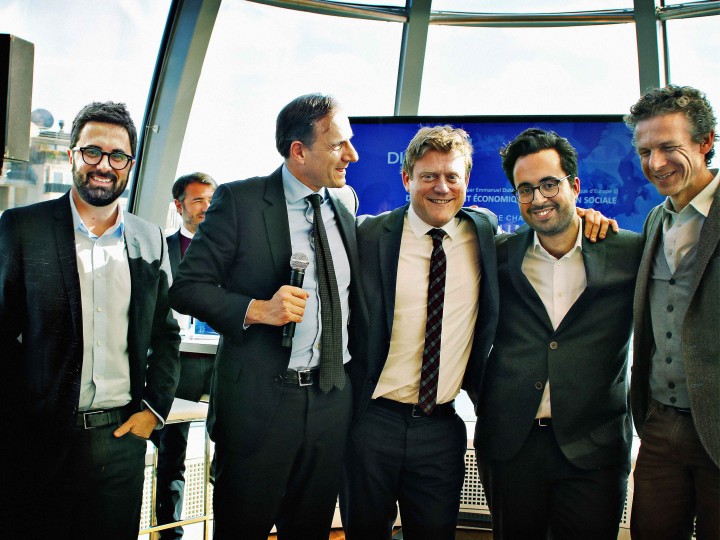Digitalism brings about new societal, economic, cultural and political aspects.
Far from being a sector on its own, digital has become a transformative force of all human activities. The scaled effects that stem from the digital economy favour a winner-takes-all logic. This new paradigm has allowed the emergence of large companies often called platforms, so as to better underline the pivotal role of data in the value chain reorganization of numerous economic sectors.
This digital reorganization undermines competitive, economic and geopolitics balances..
The United-States enjoys certain dominance upon the operators of this transformation, followed closely by the main emerging zones that are Asia and South America. With only 2% of the global capitalization of digital companies, Europe is pushed into the background as a passive witness of the digital revolution. This contributes to reducing Europe to a consumer’s reservoir that is passively producing personal data, thus rendering it dependent on these American and Asian platforms.
The current distribution of forces raises fears about a European economic feudalization and forces us to answer every question regarding the digital revolution. It is essential to address these issues if we do not want to relegate the thinking of our digital future to the current dominant platforms.
The sovereignty of States is challenged.
Large companies providing important services, considerable by some as utopian, undermine the role, and by extension the sovereignty of States. These services are relevant of numerous responsibilities of the state, such as taxation, security, or even the creation of new money.
The obsolescence of current legislation becomes obvious: copyright, intellectual property and media laws turn out to be abruptly unsuitable when faced with the reality of current practices. We must ensure the emergence of new legal concepts such as net neutrality or the right to be forgotten.
Apart from the economy and the law, the very conception of our lives is subject to disruption. Ethics must be called in when it comes to the evolution of privacy, or in the face of the digital-biotechnology alliance, as a harbinger of deeper changes.
Faced with a dynamic digital revolution, the main concern is to actively participate in it, not only to endure it.
This demands an extensive analysis of the current transformation mechanism in order to formulate concrete and balanced regulatory measures, enabling a smooth evolution which would not restrain innovation.
“We must create an enlightened, European and humanist Internet.” (Olivier Sichel, president and founder of the Digital New Deal think tank).
The Digital New Deal Foundation aims to enlighten
the new developments that are taking place in this so-called phenomenon of “digitalization”, and this in a most complete manner. To that extent, we aim to explore and formulate concrete measures needed to support both companies and policy-makers.
Relying on our authors’ expertise and their integration in the public debate, the Digital New Deal Foundation’s work could be used to design a French and European vision of digital regulations regarding the implementation of a balanced and sustainable framework.
- Think&Do
The Digital New Deal Foundation essentially relies on its board of directors.
The board collectively decides the topics that should be addressed, in what order, the designation of an author, the proofreading, the validation and the authorization of publication.
Our work can originate from one of the board directors or from any other person that has a particular expertise, if he or she has been designated by our board of directors. To that extent, the Digital New Deal Foundation consolidates a network of experts on economic, fiscal, legal and societal thematics, so as to permanently enhance and enlarge the scope and quality of its work.
The designated author is free to organize his work as he or she thinks best. Thematic auditions can be organized by the board of directors as to nourish on-going works.
An executive officer (Arno Pons) is responsible for strategic steering with the founding chairman (Olivier Sichel) and supervises a project manager (Louis Magnes), that coordinates all the think tank’s activities.
–

